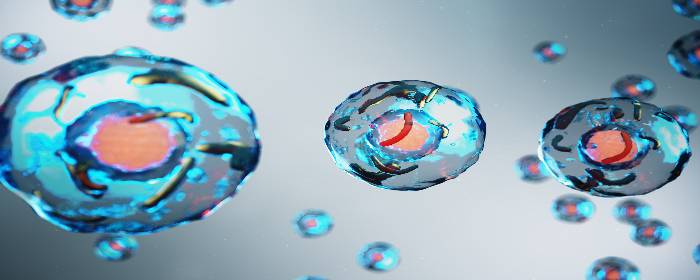Much of the initial excitement surrounding stem cells was that they have the potential to become other types of cells. Add cardiac stem cells to a heart damaged by a heart attack, for example, and perhaps those stem cells will become new heart cells and restore heart function. While this does occur—stem cells differentiated mature into adult cells—a fascinating and potentially more exciting use of stem cells is for what they secrete rather than what they become.
Over the past few years, researchers have become increasingly interested in the beneficial substances that stem cells secrete. Researchers refer to the collection of substances that stem cell secretes as its secretome. Stem cell researchers grow various kinds of stem cells in the laboratory and then measure the substances that the stem cells secrete to identify its secretome.
Dr. Hsieh and coauthors discovered that stem cells taken from human umbilical cord secrete an astounding number of helpful molecules. The scientists collected mesenchymal stem cells from Wharton’s jelly (which is a substance found in the human umbilical cord that is normally thrown away as medical waste). They then compared those mesenchymal stem cells with stem cells taken from bone marrow. The researchers found that the umbilical cord mesenchymal stem cells produced molecules that help protect nerve cells, helps nerve cells grow, and help blood vessels grow. The effects were much greater than from cells taken from bone marrow.
One interesting result from their scientific study was the effect of umbilical cord mesenchymal stem cells on injured nerve cells. The researchers deprived brain cells of sugar and oxygen to mimic what the cells would experience during a stroke. The substances secreted by stem cells protected the nerve cells during this harsh treatment. This effect was much stronger in the umbilical cord stem cells compared to the bone marrow stem cells.
Another interesting result from this research was that umbilical cord mesenchymal stem cells helped blood vessel cells organize and form new blood vessels (“tubes”). This could be very important for establishing blood flow to damaged tissue from burns, frostbite, heart attack, or stroke.
These results show that mesenchymal stem cells taken from umbilical cord tissue (Wharton’s jelly) have a unique secretome, which is more potent than similar cells taken from bone marrow. This research is particularly important for patients who have suffered an ischemic stroke or heart attack, as it may provide a clue for a way to treat these conditions in the future.
Reference: Hsieh et al. (2013). Mesenchymal Stem Cells from Human Umbilical Cord Express Preferentially Secreted Factors Related to Neuroprotection, Neurogenesis, and Angiogenesis. PLOS One.2013; 8(8): e72604.


 St. Petersburg, Florida
St. Petersburg, Florida
